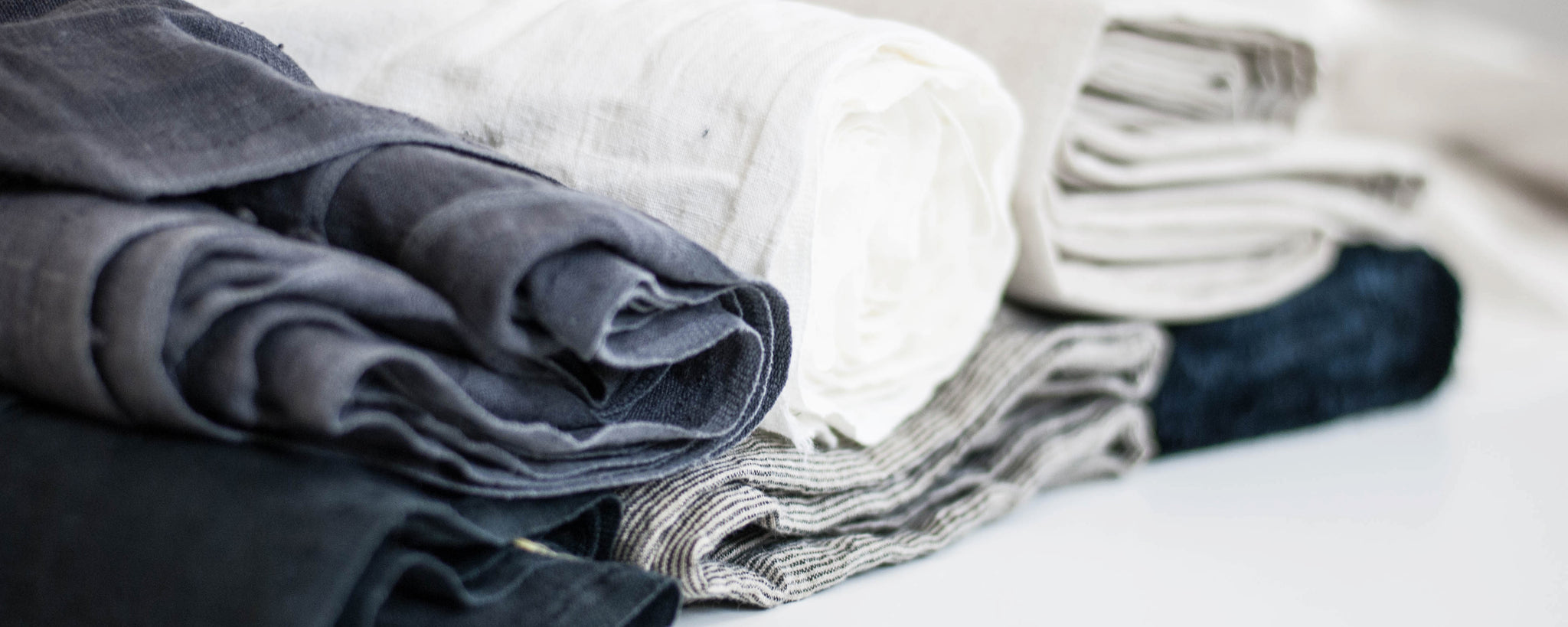Fabrics & certification

We use carefully selected, natural fabrics sourced and made in Europe.
Linen
Our linen fabrics are produced in Lithuania and have OEKO-TEX and European Flax™ certification.
Midweight linen
205 g/m2 - light-to-medium weight linen, that we use for most of our garments. Comfortable in all seasons.
230 g/m2 - medium weight linen, slightly thicker and more durable. We use it for jackets and pants.
Linen fibre is made from the stem of the flax plant. Flax is the only cellulosic plant indigenous to Western Europe, although it grows in many parts of the world if the climate is proper to its needs. Linen is environmentally friendly fiber which requires relatively little irrigation and energy to process and is 100% biodegradable. In comparison with commercially grown cotton, only one-fifth of pesticides and artificial fertilizers are required. Linen fibers are the strongest of all plant-based fibers. Linen fabric is two to three times stronger than cotton. Because of its porous nature, linen has natural heat and moisture wicking properties that make it a good conductor of heat. Linen is also hypoallergenic, very resistant to damage from abrasion, biodegrades quickly and cleanly and it is extremely comfortable in all seasons. It feels cool in the summer and retains warm air in the winter. Plus it gets softer and more beautiful with each wear! Most of our linen fabrics are pre-washed and softened during the fabric manufacturing process.
Organic cotton
Our cotton fabrics are GOTS certified and manufactured in Turkey.
Organic cotton is grown using methods and materials that have a low impact on the environment. Organic production systems replenish and maintain soil fertility, reduce the use of toxic and persistent pesticides and fertilizers, and build biologically diverse agriculture. Third-party certification organizations verify that organic producers use only methods and materials allowed in organic production. Organic cotton is grown without the use of toxic and persistent pesticides and synthetic fertilizers. In addition, federal regulations prohibit the use of genetically engineered seed for organic farming.
Source: https://organiccottonplus.com/pages/learning-center
GOTS certification
The Global Organic Textile Standard (GOTS) is the worldwide leading textile processing standard for organic fibres, including ecological and social criteria, backed up by independent certification of the entire textile supply chain.
Find more about GOTS > http://www.global-standard.org/the-standard/general-description.html
Wool
Zero waste approach
